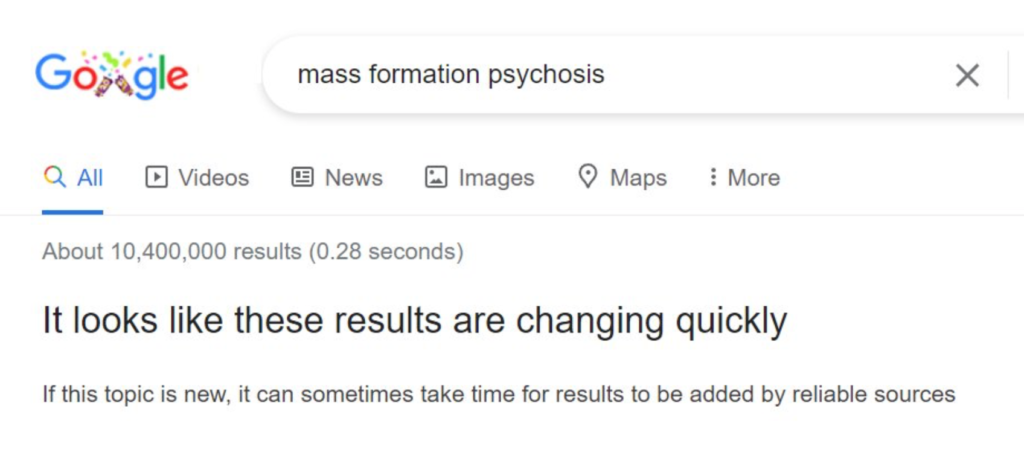And why is Google rushing to change and debunk the definition while deleting the relevant interviews? Watch this…
The Hill1.45M subscribers
Kim Iversen explains what “mass formation psychosis” is.
YOUTUBE CENSORS AND REMOVES JOE ROGAN INTERVIEWS WITH ROBERT MALONE AND PETER MCCULOUGH:
Joe Rogan interview with Dr Robert Malone taken down by YouTube | The Independent
Many more people turn to Google for information about the world than use Twitter, so when Google censors ideas, the societal impact is potentially very wide reaching. Last week one specific search term drew a speedy and surprising response from the search giant.
“It looks like these results are changing quickly,” a notice explained. “If this topic is new, it can sometimes take time for results to be added by reliable sources.”
The term is “mass formation psychosis”, a description of collective hysteria, and it had gained a sudden spike in popularity and searches after a talk by a Belgian academic discussing the phenomenon was promoted by anti-vaxxer Robert Malone in an appearance on the Joe Rogan show (which YouTube has since deleted).

According to Professor Mattias Desmet of the psychology faculty at Ghent University, whose talk was extensively discussed by Rogan and Malone, a generalised sense of anxiety leaves a population in a hypnotic state, vulnerable to suggestion. It isn’t a new idea. Mass formation draws on work by the 19th century writer Gustave Bon, commonly credited as the father of crowd psychology. Le Bon was avidly read by Lenin, Hitler and Mussolini, and became a huge influence on Louis Bernays, Freud’s nephew and the inventor of modern public relations…READ MORE

Get your copy from our Online Store or your local book and magazine retailer
Australian Retail Locations » Uncensored Publications Limited
New Zealand Retail Locations » Uncensored Publications Limited
As censorship heats up and free thought becomes an increasingly rare commodity, we appeal to our readers to support our efforts to reach people with information now being censored elsewhere. In the last few years, Uncensored has itself been censored, removed from the shelves of two of our biggest NZ retailers – Countdown Supermarkets and Whitcoulls Bookstores – accounting for 74% of our total NZ sales.
You can help keep the Free Press alive by subscribing and/or gifting a subscription to your friends and relatives.








